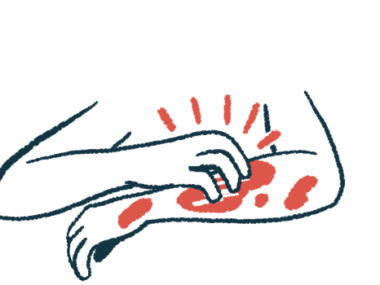Amryt’s AP101 Granted Rare Pediatric Disease Designation for EB
Written by |

Amryt Pharma’s investigational therapy AP101, designed to reduce the time it takes for skin wounds to close, was granted Rare Pediatric Disease designation by the U.S. Food and Drug Administration for the treatment of children with epidermolysis bullosa (EB).
Rare Pediatric Disease status is granted to product applications for diseases that affect fewer than 200,000 children in the U.S., ages 18 or younger.
With this designation, Amryt might become eligible to receive FDA’s priority review vouchers, if the application meets specific criteria. The priority review voucher program was created as an incentive for companies to develop other treatments for rare diseases that might not otherwise be profitable to develop because there aren’t as many patients needing treatment.
The voucher can be used, sold, or transferred to receive a priority review of a subsequent marketing application for a different product.
“We are pleased to have been granted this Pediatric Rare Disease designation by the FDA, which recognizes the rare and serious nature of EB and its impact on the lives of children suffering with this condition,” Joe Wiley, the CEO of Amryt Pharma, said in a press release.
AP101 (oleogel-S10) is a topical product made of refined birch bark extract and contains 72-88% betulin, a molecule capable of inducing skin cell progenitors (keratinocytes) to migrate to the wound site and differentiate into mature cells, accelerating skin repair processes.
In 2016, AP101 was approved for the treatment of partial thickness wounds in adults in the European Union, under the brand name Episalvan.
Earlier this year, Amryt launched its global Phase 3 EASE study (NCT03068780) to investigate the safety and efficacy of AP101 in reducing the time of wound closure in EB patients.
According to the company, the EASE trial is the largest-ever global Phase 3 study for EB, and expects to recruit about 192 participants in several countries. The company is still discussing alterations to the protocol with the FDA and the European Medicines Agency. More information about the trial and how to participate can be found here.
Amryt plans to report interim efficacy data on the EASE trial later this year, while top-line data is expected in the second quarter of 2019.
“With the interim efficacy readout for our Phase III trial of AP101 in EB due later this year, we look forward to continuing to demonstrate progress with our lead development asset,” Wiley said.





